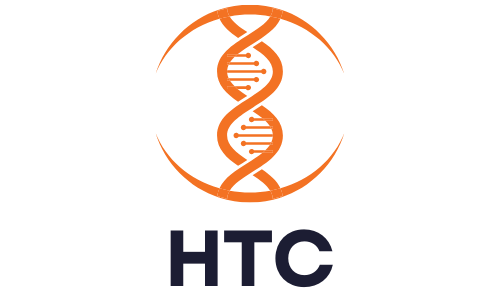The Role of Blockchain in Health Data Management
Blockchain technology, initially designed to secure digital transactions like cryptocurrencies, has expanded its scope into various sectors, including healthcare. This transformative technology promises to revolutionize health data management by enhancing security, interoperability, and efficiency. The importance of blockchain in health data management lies in its potential to address long-standing issues such as data breaches, fragmented patient records, and high administrative costs. This blog explores the multifaceted role of blockchain in health data management, delving into its benefits, challenges, and future trends.
Blockchain is a decentralized digital ledger technology that records transactions across many computers so that the registered transactions cannot be altered retroactively. In healthcare, blockchain can securely manage patient records, streamline supply chains, and improve clinical trial processes, among other applications.
Blockchain consists of three main components: blocks, nodes, and miners. Each block contains a list of transactions, and these blocks are linked in a chain. Nodes are individual computers that participate in the blockchain network, and miners are responsible for validating transactions and adding them to the blockchain. Technologies like cryptographic hashing, consensus algorithms, and smart contracts are integral to the functioning of blockchain.
Examples of Blockchain Applications in Health Data Management
- Electronic Health Records (EHRs): Blockchain can create a unified patient record system, accessible across different healthcare providers, ensuring accurate and up-to-date patient information.
- Supply Chain Management: It can track pharmaceuticals from production to delivery, preventing counterfeit drugs and ensuring product authenticity.
- Clinical Trials: Blockchain can improve transparency and integrity in clinical trials by securely storing and sharing trial data.
Benefits of Blockchain in Health Data Management
Blockchain's decentralized nature and cryptographic security make it highly resistant to data breaches. Each transaction is encrypted and linked to the previous one, creating a secure chain that is difficult for hackers to alter. This ensures that patient data remains confidential and protected against unauthorized access.
Blockchain enables seamless sharing of health records across different systems and providers. This interoperability ensures that healthcare providers have access to complete patient histories, leading to better-informed decisions and improved patient care. Patients can also access their health records from anywhere, facilitating continuous and coordinated care.
By reducing administrative burdens and streamlining processes, blockchain can significantly lower healthcare costs. It eliminates the need for intermediaries, reduces paperwork, and ensures faster and more accurate data exchanges. This efficiency can translate into significant savings for healthcare organizations and improved patient outcomes.
Notable Labs use of Blockchain in Health Data Management
Notable Labs stands at the forefront of integrating precision medicine into healthcare, demonstrating how advanced genetic and molecular analyses can be seamlessly incorporated into standard healthcare coverage. By leveraging these advanced techniques, Notable Labs collaborates with insurers and healthcare providers to pioneer innovative approaches that ensure precision medicine treatments are accessible and affordable for all patients.
Their commitment to evidence-based practices and robust clinical data supports the development of reimbursement policies that recognize the value and cost-effectiveness of precision medicine. This approach is vital in transforming how healthcare systems view and implement precision medicine, moving it from a niche practice to a mainstream healthcare solution.
Notable Labs' collaboration with insurers and healthcare providers is a cornerstone of their strategy. By working closely with these key stakeholders, Notable Labs ensures that the latest advancements in genetic and molecular analyses are not only available but also covered under standard healthcare policies. This integration helps in mitigating the high costs traditionally associated with precision medicine, making it more accessible to a broader patient population.
One of the critical aspects of this collaboration is the development of tailored insurance policies that can accommodate the unique needs of precision medicine. These policies are designed to cover the costs of advanced diagnostic tests, personalized treatment plans, and follow-up care, ensuring that patients receive comprehensive coverage. This approach not only makes precision medicine more affordable but also encourages more insurers to include these treatments in their plans, further expanding access.
At the heart of Notable Labs' operations is a steadfast commitment to evidence-based practices. By relying on robust clinical data and the latest research, Notable Labs ensures that every treatment plan they develop is grounded in scientific evidence. This commitment to data-driven decision-making enhances the efficacy of treatments and builds trust with patients, healthcare providers, and insurers.
Notable Labs uses sophisticated data analytics tools to continuously monitor and evaluate the outcomes of their treatments. This continuous feedback loop allows them to refine and optimize their approaches, ensuring that they are always providing the most effective and up-to-date care. By maintaining a strong focus on evidence-based practices, Notable Labs can demonstrate the real-world benefits of precision medicine, supporting their efforts to advocate for broader adoption and coverage.
A significant part of Notable Labs' mission is to develop reimbursement policies that reflect the value and cost-effectiveness of precision medicine. By providing comprehensive data and evidence of the long-term benefits and cost savings associated with precision treatments, Notable Labs works to persuade insurers and policymakers to adopt more favorable reimbursement policies.
These policies are crucial in making precision medicine sustainable and widely available. They ensure that patients are not burdened with prohibitive out-of-pocket costs, which can be a significant barrier to accessing advanced treatments. By advocating for policies that cover the full spectrum of precision medicine—from initial genetic testing to personalized treatment plans and follow-up care—Notable Labs helps to create a healthcare environment where innovative treatments are within reach for everyone.
Notable Labs is setting a new standard in healthcare by integrating cutting-edge medical advancements into everyday practice. Their work in precision medicine is not just about treating diseases; it’s about transforming the entire healthcare system to be more personalized, efficient, and effective. By demonstrating the practical applications and benefits of precision medicine, Notable Labs is paving the way for a future where personalized healthcare is the norm.
This shift towards personalized healthcare means that treatments are tailored to the individual characteristics of each patient, such as their genetic profile, lifestyle, and environment. This approach increases the likelihood of successful outcomes and reduces the risk of adverse reactions, leading to better overall health and well-being.
As a leader in the field, Notable Labs exemplifies the potential for precision medicine to revolutionize patient care. They are pioneering personalized healthcare by ensuring that each patient receives the most effective and individualized treatment possible. This patient-centered approach is a significant departure from the one-size-fits-all model that has dominated healthcare for decades.
By focusing on the individual needs of each patient, Notable Labs can provide treatments that are more effective and have fewer side effects. This approach not only improves patient outcomes but also enhances the overall patient experience, fostering a sense of trust and collaboration between patients and healthcare providers.
Notable Labs stands as a beacon of innovation in the integration of precision medicine into healthcare. Their work in collaborating with insurers and healthcare providers, committing to evidence-based practices, developing reimbursement policies, and setting new standards in healthcare is paving the way for a future where personalized healthcare is the norm. Through their efforts, Notable Labs ensures that precision medicine treatments are accessible, affordable, and effective, transforming patient care and improving health outcomes for all.
Case Studies of Blockchain Solutions
One notable example is the use of blockchain by the Estonian government, which has implemented blockchain technology to secure and manage health records for its citizens. This system ensures data integrity, reduces fraud, and provides patients with control over their health information.
- MedRec: A project by MIT that uses blockchain to manage electronic health records. It allows patients to control access to their data and ensures data integrity across different healthcare providers.
- PharmaLedger: A European Union-funded project that leverages blockchain to enhance the pharmaceutical supply chain, ensuring drug authenticity and patient safety.
These case studies demonstrate the potential of blockchain to enhance security, improve interoperability, and streamline processes in healthcare. However, they also highlight the importance of addressing technical and regulatory challenges to fully realize these benefits.
Challenges and Risks
While blockchain offers significant benefits, its adoption in healthcare faces several challenges. These include the complexity of integrating blockchain with existing systems, the need for significant computational resources, and concerns about data privacy and security.
Healthcare is a heavily regulated industry, and blockchain must comply with various regulations such as HIPAA in the United States and GDPR in Europe. Ensuring compliance while leveraging the benefits of blockchain can be challenging. Organizations must navigate a complex landscape of laws and regulations designed to protect patient data and ensure ethical practices.
To overcome these challenges, healthcare organizations can adopt a phased implementation approach, starting with pilot projects to test the feasibility and benefits of blockchain. Collaborating with regulatory bodies and industry stakeholders can also help in navigating compliance issues. Additionally, investing in robust cybersecurity measures and continuous staff training can mitigate the risks associated with blockchain implementation.
Investment Opportunities in Blockchain HealthTech
Investors can look into companies developing innovative blockchain solutions for healthcare. Companies like Chronicled, Solve.Care, and Medicalchain are leading the way in using blockchain for health data management, supply chain, and patient-centric care.
Factors to Consider When Investing in This Field
- Technological Viability: Assess the technical feasibility and scalability of the blockchain solutions.
- Regulatory Compliance: Ensure that the companies are addressing regulatory requirements.
- Market Demand: Evaluate the market need for the blockchain solutions and their potential impact on healthcare.
Long-Term vs. Short-Term Investment Strategies
Long-term investments in blockchain health tech can yield significant returns as the technology matures and becomes widely adopted. Short-term strategies may involve investing in companies with immediate, tangible blockchain applications that address pressing healthcare issues. Balancing these strategies can help investors maximize their returns while supporting innovation in health data management.
Future Trends and Innovations
- Decentralized Clinical Trials: Blockchain can facilitate decentralized clinical trials by securely managing and sharing trial data, enhancing transparency and patient participation.
- Interoperable Health Ecosystems: Future healthcare systems may leverage blockchain to create interoperable ecosystems where health data can be seamlessly shared and accessed across different platforms and providers.
- Patient-Centric Health Records: Blockchain can empower patients by giving them control over their health data, allowing them to grant or revoke access to their records as needed.
Advancements in technologies like AI and IoT can complement blockchain in health data management. For instance, AI can analyze blockchain-stored health data to provide insights, while IoT devices can securely transmit data to blockchain networks. These synergies can lead to more sophisticated and effective healthcare solutions.
Predictions for the Next Decade in Blockchain HealthTech
In the next decade, blockchain is expected to become integral to health data management, with widespread adoption across healthcare systems. It will enhance data security, improve patient outcomes, and drive efficiency in healthcare operations. The continuous development of blockchain standards and protocols will further streamline its integration into existing healthcare infrastructures.
Conclusion
Blockchain technology offers significant potential in transforming health data management by improving security, enhancing interoperability, and optimizing costs. Successful implementations like those in Estonia and by projects like MedRec and PharmaLedger demonstrate its impact.
While challenges remain, the benefits of blockchain in health data management make it a promising technology for the future of healthcare. Its ability to provide secure, transparent, and efficient data management solutions is invaluable in an increasingly digital healthcare landscape.
Investors and stakeholders are encouraged to explore and support blockchain health tech solutions, as these innovations hold the key to a more secure, efficient, and patient-centric healthcare system. By investing in blockchain technology, we can drive the transformation of healthcare, ensuring better outcomes for patients and more sustainable healthcare systems.










